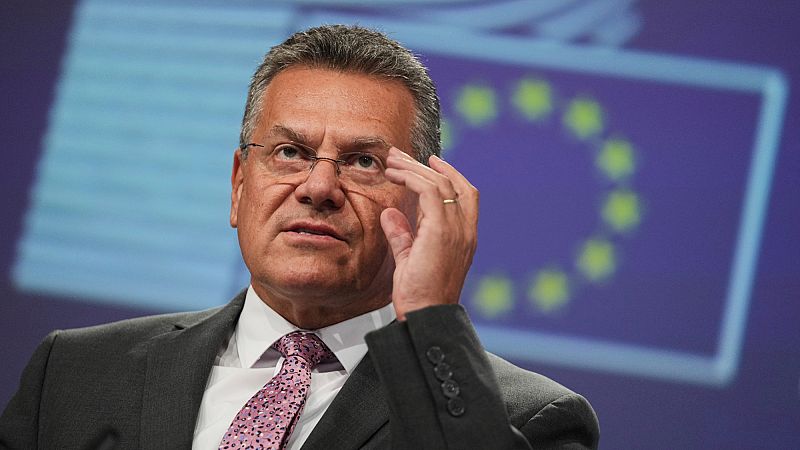EU trade chief Šefčovič slams China’s rare earth export curbs

European Commissioner for Trade Maroš Šefčovič took aim at China after an EU trade ministers' meeting in Denmark on Tuesday, considering the EU “cannot stand by” since Beijing announced export controls on rare earth-related technologies.
“Over the last couple of days, we've been again reminded how unfortunately commodities, product sensitive technologies could be weaponized, and how Europe has to be ready,” Šefčovič said as he was describing the impact of new Chinese controls on rare earth on EU business.
China announced on 9 October new export controls on technologies related to rare earths — materials essential to the digital, automotive, energy, and defence sectors — making obtaining an official license mandatory for exporting technologies used in the extraction and smelting of these elements.
“This is unprocessable,” Šefčovič said, explaining that 50% of the applications submitted by European companies have received China's green light so far and that the process is a real headache, with intrusive requests from the Chinese authorities.
“There is an insistence on very detailed photo documentation of the production line process as well as the information on the entire supply chain,” the Commissioner explained.
“This is not something with which we can live in the future because it's really hampering the economic operations of companies.”
The issue is expected to be on the agenda of a high-level exchange between Brussels and Beijing next week.
Europeans are said to be threading gently with Beijing, as some member states are reluctant to jeopardise Chinese investment in their territories.
'More robust attitude towards China' needed
Chinese automakers are currently expanding across Europe, with BYD setting up a plant in Hungary, Chery in Poland, and Changan and NIO considering settling in Europe too.
The rare-earth export controls announced by China might push the EU to take a stricter stance — possibly by demanding technology transfers from Beijing, just as China benefited from such arrangements when European companies set up operations on its soil — some decision-makers have implied.
“We need to find ways to have a more robust attitude towards China,” Danish Foreign Minister Lars Rasmussen stated on Tuesday.
“If we in invite Chinese investments to Europe, it must come with the precondition that we also have some kind of technology transfer.”
Rasmussen, who chaired the meeting of EU trade ministers, nonetheless clarified that discussions among EU member states still needed to continue on the issue.
Trade tensions between Beijing and Brussels are nothing new.
In 2024, the EU imposed tariffs on Chinese electric vehicles, prompting Beijing to retaliate with several investigations into European products and the announcement of tariffs on EU brandy and pork. An investigation is also ongoing on EU dairy products.
Today

